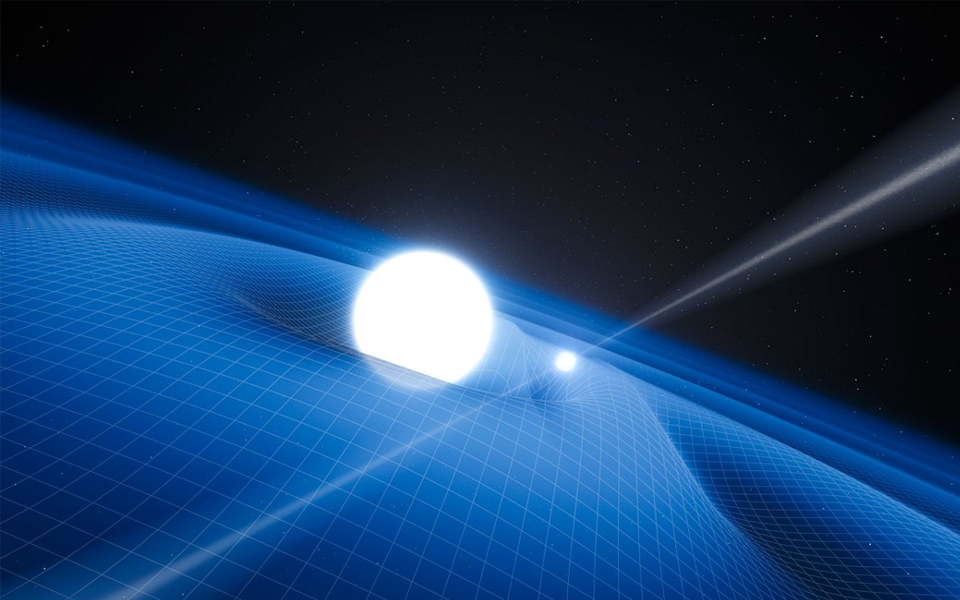Home of the Gods: How Tall is Mount…
A team of researchers has scaled…

Gravitational waves are ripples in the fabric of spacetime
© ESO/L
It’s the scientific news that took the world by storm; 100 years after Albert Einstein predicted their existence, a team of scientists finally confirmed the existence of gravitational waves. These waves are ripples in the fabric of spacetime that triggered violent, cosmic cataclysms in the early universe, most notably the Big Bang which created the universe.
An international team of scientists from CalTech, MIT and the LIGO Scientific Collaboration had been working on detecting the waves. Their confirmed detection, which arose from the collision of two black holes 1.3 billion light years away, is groundbreaking and will help scientists understand the birth of our universe. Theoretical Physicist Michio Kaku described the waves as the equivalent of baby pictures of our universe.
One of the 1000 or so scientists that worked on this discovery is Vicky Kalogera from Northwestern University. For Kalogera, an expert in black-hole formation in binary systems and in LIGO data analysis, the moment of discovery represented the culmination of two decades of work.
In an interview with Northwestern University’s website, she said she couldn’t believe her eyes when she realized what her data was showing.
“To detect something in the first few days after turning on our new detectors and to have a detection of an unexpected source – ‘heavy’ binary black holes – is just amazing,” said Kalogera.
Explaining the relevance of the discovery to our everyday lives, Kalogera said “Had you asked Einstein 100 years ago, ‘Why are you curious about understanding gravity? Why do you want to develop a mathematical theory that only 10 people on Earth can understand,’ his answer probably would not have been very informative about how it would affect people’s lives.”
And yet today, she said, general relativity plays a role in your everyday life.
“GPS technology doesn’t work without general relativity. That knowledge affects how satellites move and informs minuscule corrections of their motion. If we couldn’t make those corrections, GPS would not work. We would be getting our location wrong by hundreds and hundreds of feet.”
Kalogera stressed that this is the beauty of basic science.
“ Basic science pursued by us humans, by those who have an innate, almost inexplicable curiosity about figuring out how nature works. The technology of today is rooted in the basic science discoveries of the past.”
Kalogera was born in Serres, northern Greece and earned her degree in Physics from the Aristoteleion University of Thessaloniki in 1992. She went on to earn a PhD in Astronomy from the University of Illinois at Urbana-Champaign in 1997. She is currently Professor of Physics & Astronomy and Director of the Center for Interdisciplinary Exploration and Research in Astrophysics (CIERA) at Northwestern University’s Department of Physics & Astronomy.
A team of researchers has scaled…
Were they places of ancient worship,…
Thessaloniki University's Centre for Aristotle Studies…
Launched in 2017, International Greek Language…